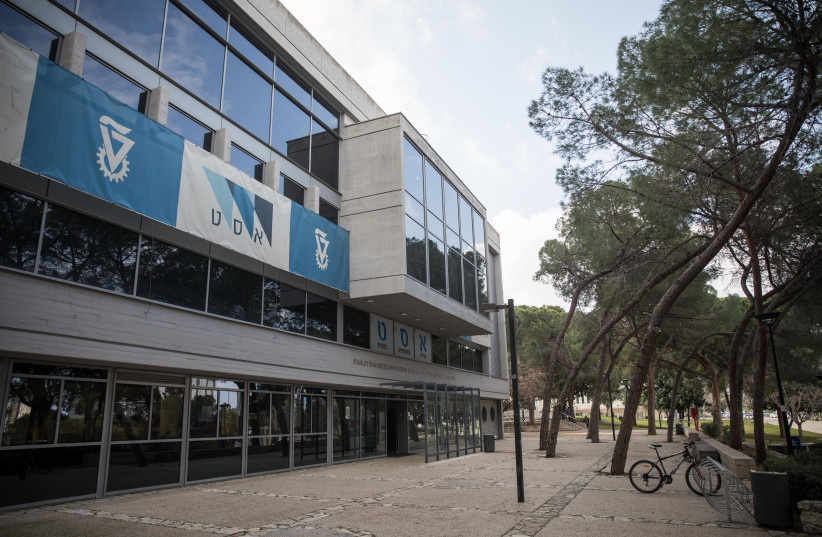Prof. Shulamit Levenberg of the Faculty of Biomedical Engineering at the Haifa Technion-Israel Institute of Technology has been chosen to be a fellow of the prestigious American National Academy of Inventors (NAI). Her nomination will be announced during its annual conference in North Carolina in June. She also serves as the director of the Technion Center for 3D Bioprinting and the Schneur Center for Diabetes Research.
NAI’s mission is to support and encourage researchers in academia whose inventions have made a significant impact on society, the economy, and human welfare. The theme of the upcoming annual conference is “Unlocking Innovations: Keys to Societal Solutions.”
The academy also ranks leading universities according to the number of patents registered in the US. Last year, the Technion was ranked in first place in Europe and 40th place globally, based on data from 2021.
Married and the mother of six children aged 14 to 27, Levenberg and her family live in Moreshet, located in the lower Galilee mountains between Karmiel and Shfaram. She will turn 55 next year.
Levenberg is among the handful of Israeli women scientists who have invented the most innovative technologies and has registered dozens of patents.

Levenberg's innovations
Levenberg is among the handful of Israeli women scientists who have invented the most innovative technologies and has registered dozens of patents.
She founded several start-up companies including Aleph Farms that created the world’s first cultivated rib eye steak. Levenberg and her team developed edible muscle tissue by bioprinting a plant-based scaffold and living animal cells. It is expected to make possible the large-scale production of cultivated meat without requiring the raising and suffering of animals in slaughterhouses, and without the environmental damage from methane gas that cows release into the atmosphere.
The printing process, which enables the creation of protein-enriched scaffolds with different geometries, is based on a method in which the bio-ink is deposited into a suspension bath that supports the materials during printing, Levenberg explained.
She was the first to engineer vascularized tissue flaps, offering novel reconstruction techniques using engineered tissue constructs. Her pioneering work demonstrated the effect of scaffold stiffness and tensile forces on early differentiation and organization of stem cells in 3D constructs, and on alignment of vessel networks in engineered tissues.
Levenberg also created unique stem-cell, engineered-tissue constructs that induce the regeneration and repair of injured spinal cords.
“Developing functional and mature three-dimensional blood vessel networks in implantable tissues is critical when using these engineered tissues to treat a number of conditions, such as cardiovascular disease and trauma injuries,” she said then. “Matching the tissue structures will improve the long-term viability and strength of tissue grafts when new blood vessel growth – called ‘angiogenesis’ – can be manipulated and exploited for the purpose of attaining optimal blood supply.”
Two more new companies she founded are NurExone, where she and her colleagues developed modified exosomes for spinal cord regeneration; and Nanosynex, where they created a microfluidics device for speedy diagnostics for antibiotic susceptibility.
Levenberg's academic achievements
She earned her doctoral degree at Rehovot’s Weizmann Institute of Science and conducted post-doctoral research in tissue engineering at Prof. Robert Langer’s lab at the Massachusetts Institute of Technology. Almost two decades ago, she joined the Technion, where she conducts interdisciplinary research on stem cells and tissue engineering.
Named by Scientific American as a “Research Leader,” she was put on its list of 50 people and organizations that have demonstrated technological leadership in research, business, or policymaking. She is well known for her seminal work on vascularization of engineered tissues.
Levenberg has received numerous awards and accolades, including the Krill Prize for excellence in scientific research, awarded by the Wolf Foundation, the France-Israel Foundation Prize, the Italian Excellence for Israel Prize, the Teva Research Prize, the Juludan Research Prize, the Bruno Award, the Rappaport Prize for Biomedical Sciences, the Katz prize, and the Medal of Distinction from the Peres Center for Peace and Innovation.
She was the president of the Israel Stem Cell Society and, until recently, served as the dean of the biomedical engineering faculty. Levenberg also was nominated to be a member of the American Institute for Medical and Biological Engineering.
